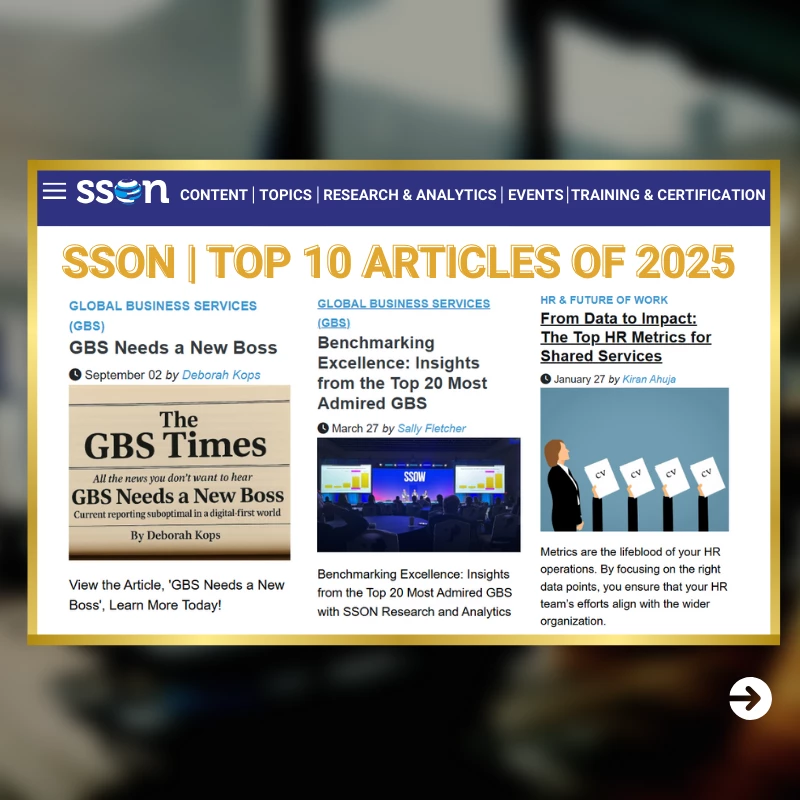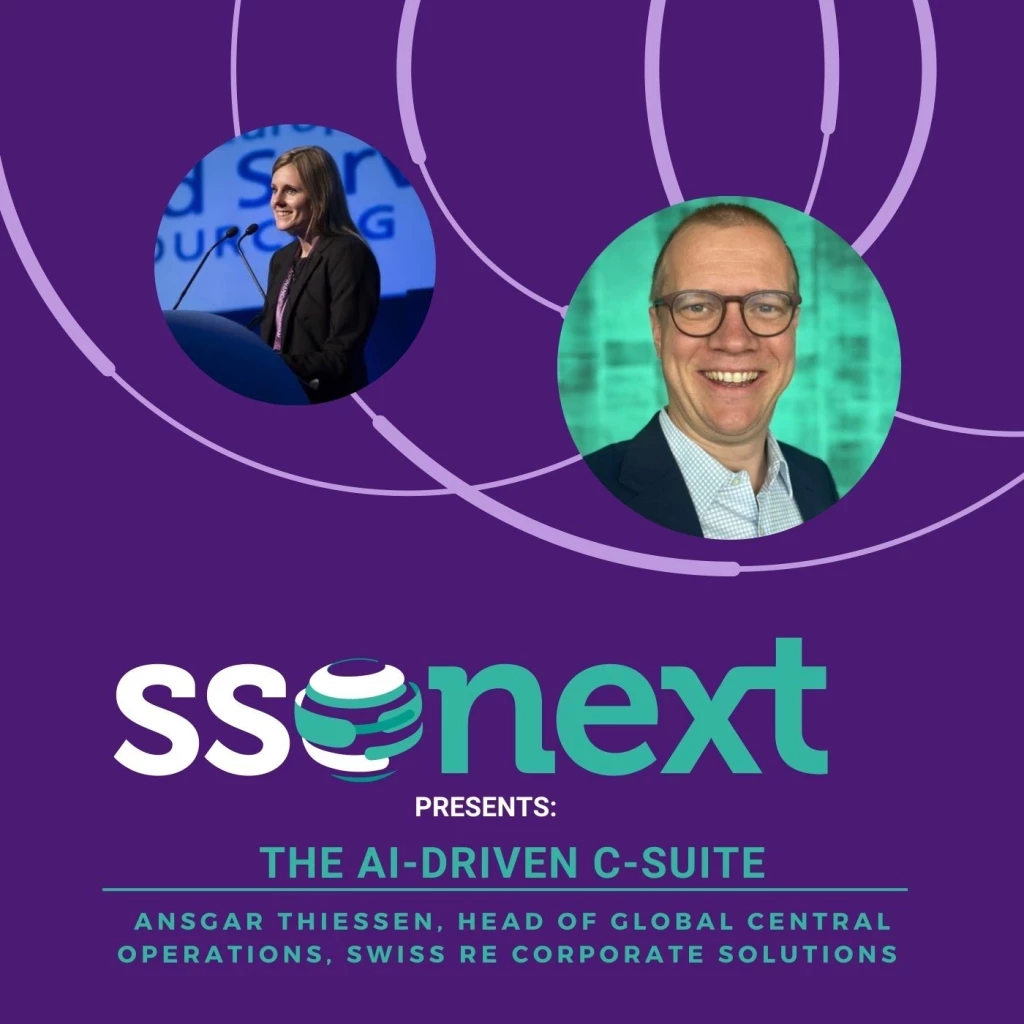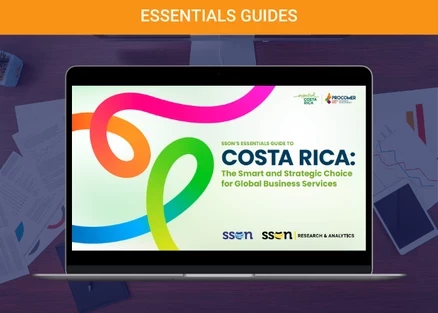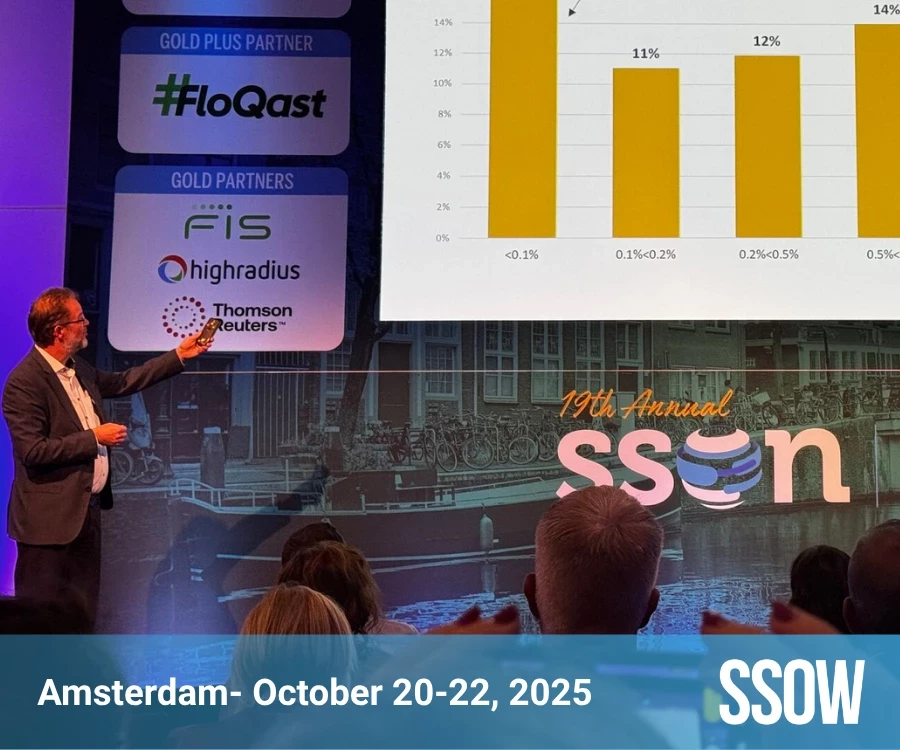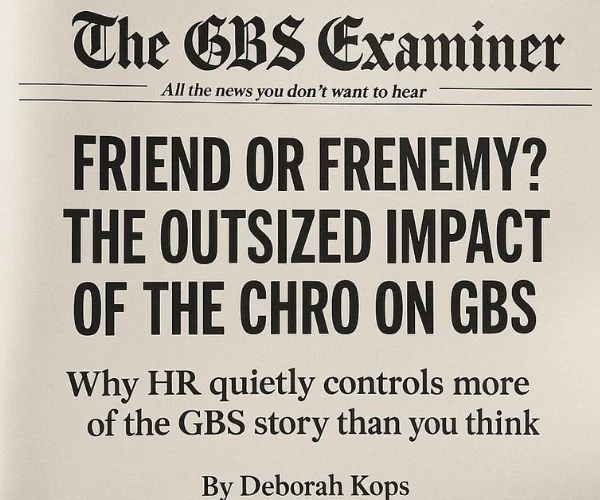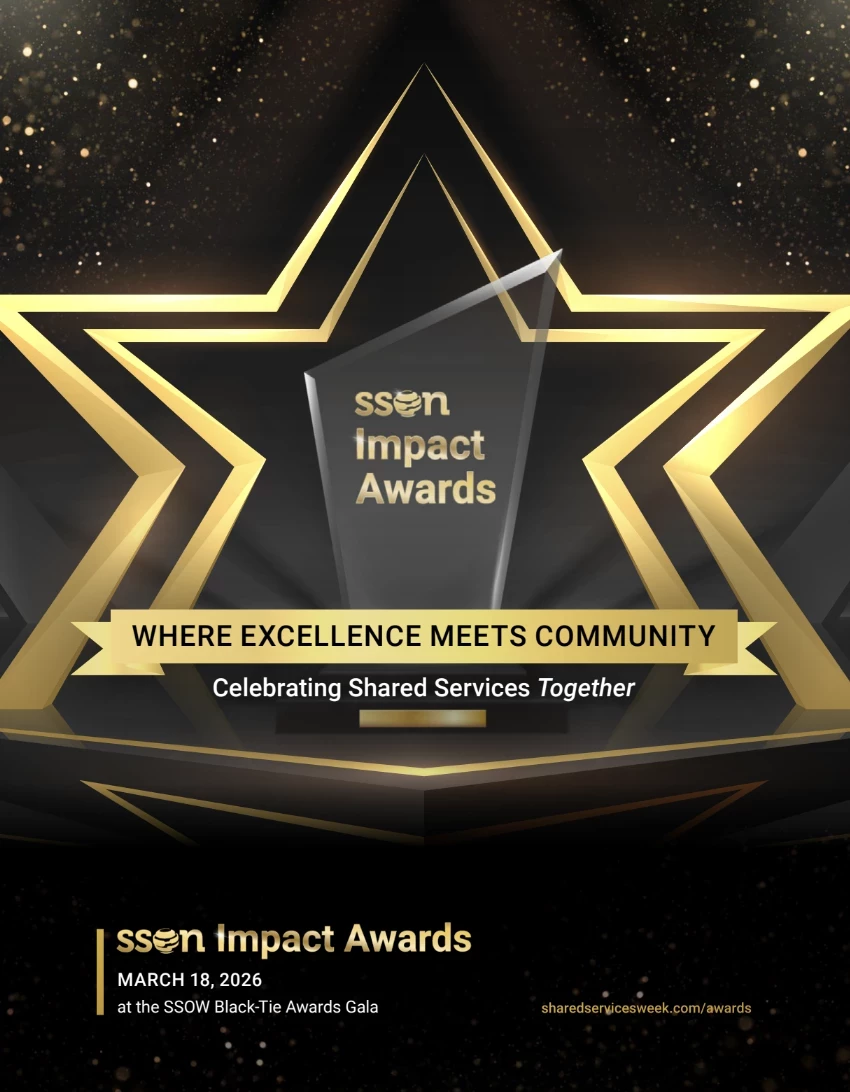The Moreira Chronicles: Bangemann and Zabel on the New Skill Sets and Career Paths in Shared Services [Part 4]
Add bookmarkOver the past year, Pedro Moreira has written a series of columns for SSON summarizing his experience in rolling out an enterprise SSO model to a subsidiary, emphasizing the pros and cons of this approach.
Following the conclusion of this series, Pedro interviewed two well-known practitioners – Tom Bangemann of the Hackett Group and Kai Zabel of Heraeus Group, both highly respected practitioners in the field of Shared Services, with decades of implementation experience. Over the next two months, we are sharing a transcript of these interviews right here, covering the role of the SSO, its evolution and future trends; implementations and operations; and a discussion around GBS and new robotic technology.
Left: Pedro Moreira, Shared Services Expert
Middle: Kai Zabel, Head of Shared Services for Accounting, Heraeus Group
Right: Tom Olavi Bangemann, Senior Vice President Business Transformation at The Hackett Group
Part 4: New Skill Sets and Career Paths in Shared Services
Pedro Moreira: With regards to the professionals working in shared services centers, do you see their competencies changing in the future? Given what we've discussed about future trends, I guess stronger IT or computer engineering skills will be required. How do you see the jobs in the SSCs evolving in future, in terms of requirements and competencies?
Kai Zabel: I think two or three points are deriving exactly from what we mentioned before. So, first of all, you definitely still need your expertise in the area where you’re working. You definitely need more global thinking, you definitely need more process-driven thinking and you definitely need more IT-driven thinking.
If automation becomes one of the key developments, that means personnel must know what they are doing, so they need to know the process and have an idea on how to automate, how to improve it further. That is my view, coming from a finance shared services center. Maybe Tom can add to that coming from a GBS driven perspective.
Tom Bangemann: What concerns talent management and skill assessment, in terms of the research that we produce, there are quite a lot of things changing. Taking what Kai said, you could extrapolate that a bit. The biggest gap that we got out of our latest skills assessment was in the HR function. Skills that deal with data analytics. And that is because HR doesn’t understand why they need data analytics. But on the other hand, if you ask them, they never know how many people they have or what skill they have and what they need tomorrow. It’s quite surprising how little knowledge there is in large companies about who they actually employ and who'll they need tomorrow.
It’s quite surprising how little knowledge there is in large companies about who they actually employ and who'll they need tomorrow.
How are they going to bridge this gap? Obviously, you will need much more follow up with technology-savvy people. In a a simple example, I just had this discussion last week when I presented at an event with 50 HR people. The picture we painted was, basically, the HR department of the future, where you’ll have some HR people who are really good at communication and social skills and so on. But strangely, you will also have this room with techies who are working on computers, programming something really crazy related to data analytics, and discussing the best algorithm. These people actually don’t exist in today’s HR.
So it is exactly as Kai said, there will be completely new types of individuals that we need in addition to what we had before and the role landscape is maybe more split. You’ll have people programming yes, but you can’t let these people consult employees. Whereas you need somebody else to understand what a tool can do but at the same time explain it in a way that the employees take on their journey, so that they get what they need to do. There will be more and more of this technology coming in and maybe HR is the most extreme example because it typically adds the least of it.
[inlinead]
The other thing that we find in our skill assessment is that certain basic skills are quite low currently. For example, if you try to find people with language skills and a good working attitude it's not really a big problem, but getting people who have managerial skills iscan be very problematic. Certain basic skills, like managing others, are something that people either can do or they can’t. You need to have a certain basic basis that you can build on, and obviously you can teach a lot, but typically people need to have the basic abilities. Other things you can teach, like what the company is doing. That's what we call business acumen, understanding what the company does.
It used to be that, for an accounting center, we hired people that came from accounting. Then the next requirement would be a little local language. In the future, I think we’ll take people that have certain technical abilities and a certain attitude to work, the rest you will teach them. The way that we look at the skills list and how we prioritize it is changing. It’s not that it’s completely different but I think the weightings are moving.
PM: There is a trend there for the future, meaning that the training people are receiving to prepare them for a job will change. In the past, transactional-related activities were the entry point for an accountant. It seems that will be eliminated in the future, so that entry point won't exist. I guess that training will need to change to realign with business needs?
TB: Yes, I think there will be different tasks. There will be the traditional tasks and there is nothing wrong with the traditional tasks because, if you learned accounting you can move into controlling, you can move into other things where there is a logical path for you to move on.
The question that you pose is the tricky one: what if I don’t have any accounting people anymore and I am hiring people who have the right skills but don’t know accounting? How am I actually explaining how to do controlling? Then I need to provide them with certain content that, otherwise, they might have had when they came in. I would do that because I value certain other abilities or skills more. For example, if they are really good on certain technologies or they can program things or they know several languages or whatever it is, I will weight these skills differently in the future. It’s not that everything changes from today to tomorrow, but it moves into that direction. The actual technical skill of knowing how invoicing or posting is done is less relevant because I believe in a standardized process and standardized systems. I can teach it more or less on an activities basis and I would want them to understand other things more. It’s not black and white, but as a trend it is moving into that direction.
KZ: What I believe is that being purely an accountant doesn’t have a future any more. You need to have your foundation, you need to know where you’re coming from, but you should have an idea of other things as well, like languages, like intercultural skills, like technology... Just having one skill will not be good enough. However, what I see in practice is that these things are already changing. People applying for jobs, people who we are hiring, they are not single-skilled any more. They’re coming with a more international experience already, they are not just specialized in one discipline. The young people often come with a basic understanding of technologies and also with an attitude not to do things manually. Instead of that, they are looking for options to improve the process and drive automation.
The young people often come with a basic understanding of technologies and also with an attitude not to do things manually. Instead of that, they are looking for options to improve the process and drive automation.
TB: Basically, the accountant job, considering all the research which is out in the market, will disappear in the next 10 years. If you read these McKinsey Oxford studies from 2 years ago, I don’t remember exactly the percentage but I think it was 95% of accountant jobs will disappear in the next 10 years . The way that estimate is done has very little error margin. Maybe it’s only 90% but It is still going to be the same result: most of these roles are going to disappear. What's interesting is the combination with other abilities so that you can move into neighboring areas or to the next level, as the low-end is going to disappear because of technology.
T here is a significant change in terms of the skill profiles and actually that is one of the things that the GBS organizations often don’t understand. They have their 100 FTEs somewhere in the center in Poland, and they’ve used the same recruiter for the last five years ,and they always just do the same thing. They request "5 more people in P2P, same as ever”, and then they wonder why they don’t move up the maturity curve or why the stakeholders don’t see them as capable of doing more. That’s a real danger for those centers and they have to move up the maturity curve because it’s an "up or out" game. If you stay with the 100 FTEs you might optimize 5% every year. So the following year you would have 95 people and 90 people the year after. It just can’t work. You have to expand, you have to improve and you have to grow in terms of scope and maturity and there is only one way: you can only go up, otherwise you end up closing some day.













